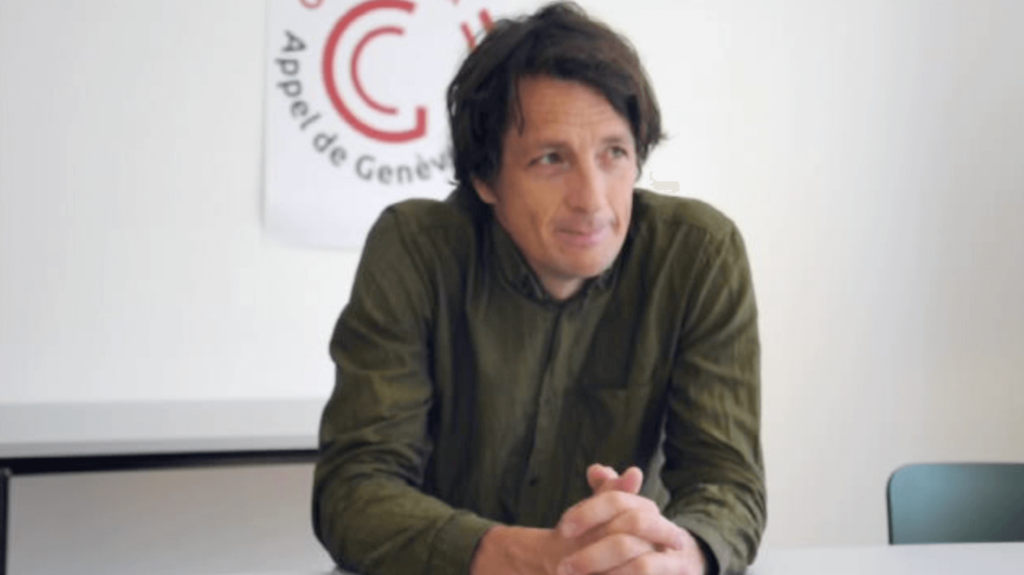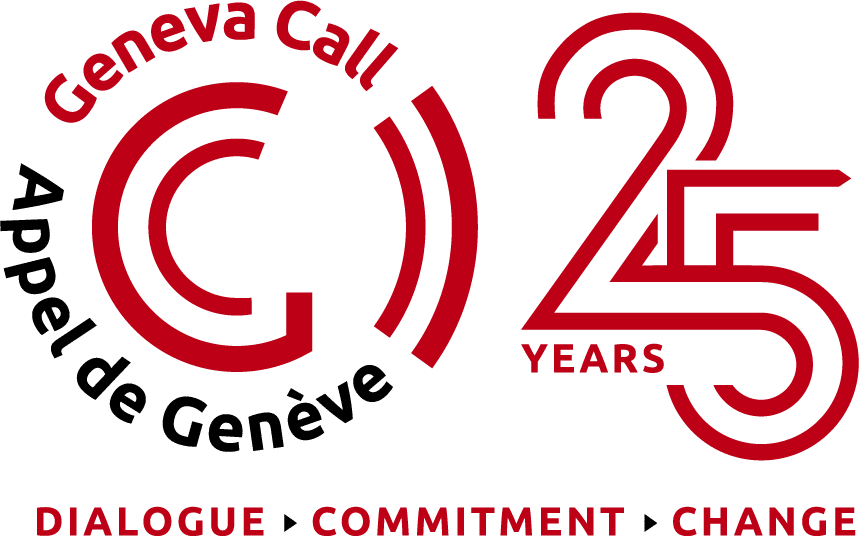
Iraq: Humanitarian Situation and Geneva Call’s priorities | An interview with Vance Culbert, Head of Region MENA and Colombia
6 août 2021
Transcript:
Can you talk about the current conflict situation in Iraq? What are the recent developments? What are the main armed actors involved?
Unfortunately we had a terrible bombing in Sadr City just yesterday, where 35 civilians were killed. These indiscriminate attacks on civilians with no clear military objective are of course one of the worst types of violations of IHL and this was claimed by the Islamic States Group. Fortunately, these types of events are less common today than they were a few years ago. There is nonetheless a range of IHL and human rights issues that we remain concerned about in Iraq today.
The protection of IDPs is a huge issue in Iraq. Can you talk about the roots of the phenomenon and its magnitude in the country?
There are hundreds of thousands of displaced people, both internally and refugees from successive waves of conflict. This is a very multifaceted issue, the reasons for this ongoing displacement include things such as lack of services in areas of return, geostrategic considerations, but also, they are sometimes blocked from returning by armed groups. This last situation is where we have the potential to intervene. We raised the issue of displaced people with a range of both armed groups and religious leaders – it is a sensitive subject, the one of the displaced Yazidis in Sinjar, but the more sensitive subject is the displaced Sunni groups. Again, the reasons for their displacement are multifaceted, but we had initiated conversations with several armed actors as well as religious leaders in Karbala and Najaf.
With the COVID-19 pandemic reaching new heights in the country, what is Geneva Call’s response to help prevent the spread of the virus?
During the first peak of the Covid epidemic in Iraq, we signed unilateral declarations for the protection of healthcare with a range of armed groups in Iraq. During a meeting with some of these armed groups, in particular, one of them mentioned that they had left two health centers they were using as military quarters, and had converted them back into health centers. They also discussed undertaking other concrete measures to facilitate access to healthcare. Today in Iraq, precautions have been lowered, however, these declarations can become important again if we see another wave, which unfortunately looks like it’s on its way. I should say that many of the armed groups also participate in social assistance, as part of how they operate, and thus, linking declarations on the protection of social services including healthcare and education can fit into the internal manner in which they perceive themselves within their communities.
What are Geneva Call’s other priorities in Iraq at the moment?
We had the opportunity to visit a broad range of armed groups across the country including in Baghdad, Karbala and Najaf as well as in Sinjar and Mosul, in addition to some of the leading Shia religious scholars, and we raised with them some of our primary areas of engagement at the moment. These include displaced peoples, as you mentioned previously, a sensitive issue, but more easily addressed if we start talking about their specificities and the displaced women and children, civilians who should have the right to local integration and who can possibly return, if the conditions allow for a safe return. We also raised the issue of the continued occupation of civilian infrastructure. So there have been a couple of good examples of armed groups leaving clinics, but there are still a number of clinics and education facilities occupied by armed groups, and we are going through making a list of who they are and engaging the groups directly.
What are Geneva Call’s recent successes in the region? What are its main difficulties?
The significant challenges, despite the relative calm that’s been experienced over the last period of time, access-related challenges both by a large number of armed groups, the fractured nature of armed groups, as well as, of course, COVID-19 lockdowns, this is why I was fortunate to be able to travel to many parts of Iraq during this trip. On the trip between Mosul and Sinjar, there were 14 checkpoints, of which only three were being maintained by regular government forces. The rest were all being maintained by different armed groups, particularly the al-Hashd al-Shabi – the Popular Mobilization Forces – who have a statute recognized by the government, nonetheless they often act in a quite independent manner. This has caused access constraints for humanitarian actors in many different parts of the country, both in Sinjar as well as in the Anbar areas. One of the things we work on is improving or negotiating access for other humanitarian actors if they are facing constraints through our ongoing dialogue with these armed groups. Other priorities continue to be access to essential services, and developing dialogue around displaced people. There is a common UN position on trying to develop the return of IDPs as well as refugees and involves the engagement of religious leaders and tribal leaders, so we’ve also started discussions with the UN to see how we will fit into that project plan.
What was the purpose of your visit to Iraq and what did you achieve?
Geneva Call in Iraq is very fortunate to have developed a dialogue with a very broad range of armed actors. The al-Hashd al-Shabi – the Popular Mobilization Fronts – there’s a large number of these groups who have different political and ideological meanings, and who fall under the Popular Mobilization Committee, which is based in Baghdad, but not all of them, particularly the ones based in Karbala and Najaf, so it’s important to keep up the discussion with the broad range of commanders and to talk about the commitments that they’ve made and possibly new commitments, the new memorandums we sign with them to push forward respect for certain IHL thematic. We are also fortunate in Iraq that Ayatollah Sistani has issued twenty points which are strong parallels to IHL, which many of the groups follow, so we are able to engage in discussions along these as well. In addition to the armed groups, we also have to continue and deepen our discussions with religious authorities in Najaf and Karbala. We also took the opportunity in Sinjar, where we launched a new project with a local youth group that is focusing on mine-risk education, particularly for children, which is linked to access to education. The number of landmines and AP Mines in Sinjar remains extremely high, there is still a lot of demining to be done, but also armed groups must desist from laying new anti-personnel mines. It’s very depressing when you drive north of mount Sinjar and see the mass graves, and are confronted with the reality of mass, indiscriminate killing of civilians, and the fact that most civilians have not yet returned to the Sinjar area. So removing the reasons for blocking the continuing return of civilians to these areas is a fundamental objective for us.
